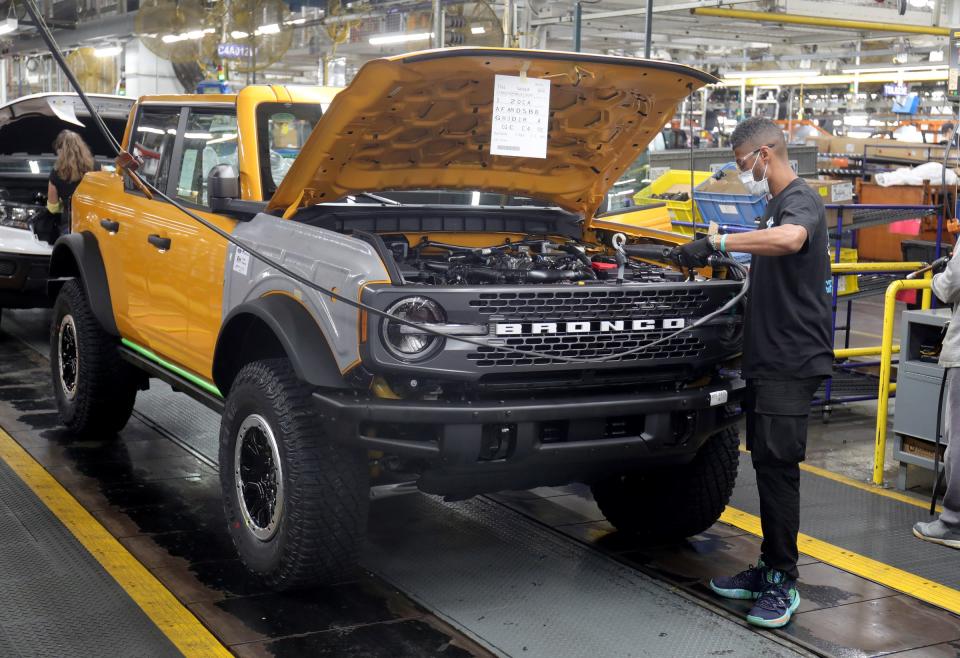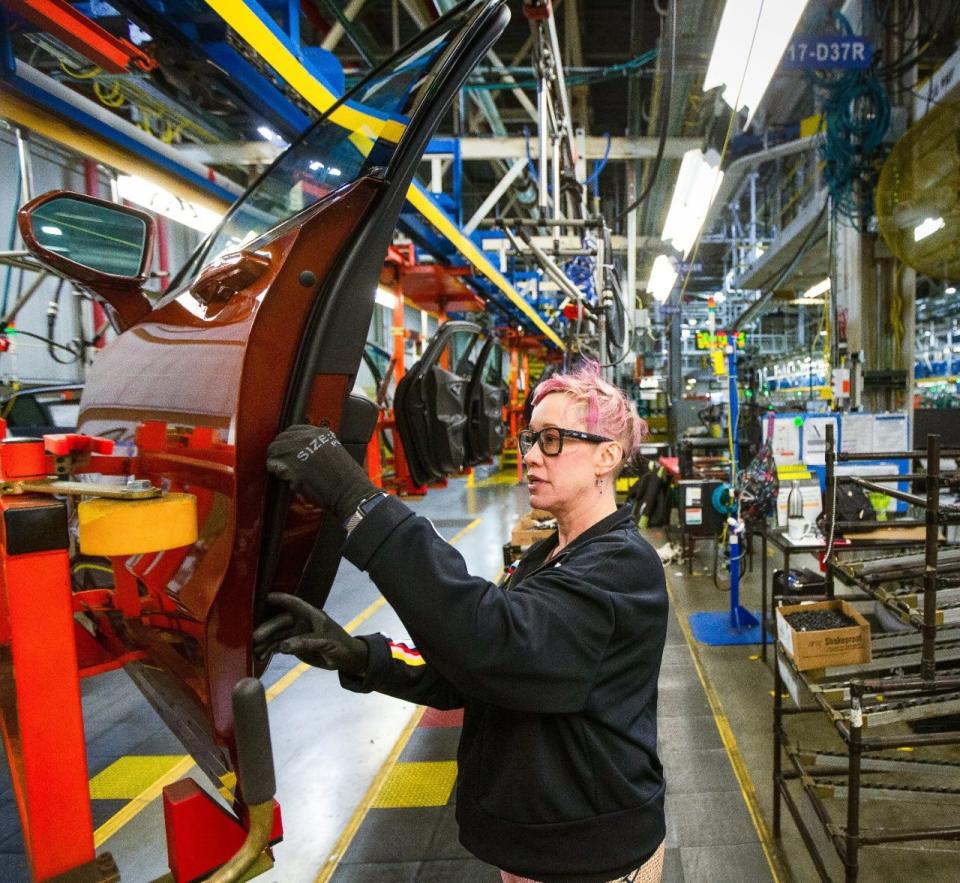GM's chip strategy that keeps production running as Ford goes down
A deal with semiconductor chipmakers is keeping General Motors assembly lines in North America rolling, while Ford Motor Co. idles many of its plants for the week.
The Detroit Three automakers each face the ongoing shortage of semiconductor chips that are used in many car parts. The shortage has been crippling production across the industry since this time last year. So far Stellantis confirms its plants in North America continue to operate as normal.
Yet Ford is the only one hit by it at the moment and shutting down.

"I couldn’t speculate about the other companies," said Ford spokeswoman Kelli Felker. "The global semiconductor shortage continues to affect Ford’s North American plants – along with automakers and other industries around the world."
GM and Stellantis are not immune to the chip shortage. Both saw a series of production disruptions throughout last year due to an inability to get the chip parts.
But GM is confident it will not be stopping production in the near term due to the chips shortage, spokesman David Barnas said.
Last week, CEO Mary Barra and CFO Paul Jacobson told investors at the Deutsche Bank Center in New York that GM predicts it will grow its production volume by 25% to 30% globally this year compared to last year. It has secured deals with the chipmakers in its supply chain, according to a research note on Monday from Deutsche Bank analyst Emmanuel Rosner.
Ford's working on it
At Ford, meanwhile, production will be disrupted at six North American plants this week as it works to mitigate the impact of the unavailable chips.
"Behind the scenes, we have teams working on how to maximize production, with a continued commitment to building every high-demand vehicle for our customers with the quality they expect," Felker said.
The following plants were either idled or shifts reduced starting Monday:
Michigan Assembly will be down: Bronco and Ranger production.
Chicago Assembly will be down: Explorer, Lincoln Aviator and Police Interceptor SUV production.
Kansas City Assembly will be down: F-150 production.
Cuautitlan Assembly plant in Mexico will be down: Mustang Mach-E production.
Dearborn Truck and Kansas City Transit production will run on one shift.
GM's commitments
Last week, Barra told Wall Street that the chip shortage was easing and she expected supply of chip parts to improve as the year progressed.
In the Deutsche Bank research note, Rosner said GM's confidence that it can grow its production volume is based on "firm supply commitments from its semiconductor manufacturers across the chain."
"GM said it has been working with the supply base, tier 2 and tier 3 suppliers and built strategic relationships with manufacturers, providing it more transparency earlier," Rosner said. "The company has received firm commitment from semiconductor suppliers."
Tier 2 and tier 3 suppliers are the smaller parts suppliers who often buy the chips directly from the chip manufacturers and assemble a part before shipping that part to a larger, tier 1 supplier. That tier 1 supplier finishes the part and ships it directly to the automaker who assembles it in a vehicle.
More smaller SUVs
Last year GM built 3,990,845 vehicles, down 13.8% from 2020, said Sam Fiorani, vice president of Global Vehicle Forecasting at AutoForecast Solutions. But he forecasts that GM will grow its production this year by 29.1% to over 5.15 million units, "as long as supplies of parts remains steady."

In its year-end earnings released Feb. 1, GM said for 2022 it expects to report a net income of $9.4 billion to $10.8 billion, and its adjusted earnings before interest and taxes to be between $13 billion and $15 billion.
GM was hit harder than most automakers last year, especially in the third quarter, due to the COVID-19 outbreak in Malaysia, making it an easier comparison against this year's results, Rosner said. GM reported its third-quarter net income plummeted to $2.4 billion from $4 billion in the year-ago period.
But for the full year, GM's pretax profits were a record $14.3 billion compared with $9.7 billion in 2020.
"GM was forced to go into optimization mode last year amid scarcity of chips, and primarily focused on preserving volumes of trucks and SUVs," Rosner wrote. "As more chip capacity comes on over the course of this year, it will be able to tap into the underutilized vehicle capacity, which includes crossovers, smaller trucks and sedans."
Looking beyond this year, Barra and Jacobson said GM can eventually reach annual production of 4 million vehicles in North America over the next few years, with 3.2 million being gasoline-powered vehicles and looking to increased adoption of electric vehicles.
Contact Jamie L. LaReau at 313-222-2149 or jlareau@freepress.com. Follow her on Twitter @jlareauan. Read more on General Motors and sign up for our autos newsletter. Become a subscriber.
This article originally appeared on Detroit Free Press: GM's chip strategy that keeps production running as Ford goes down
